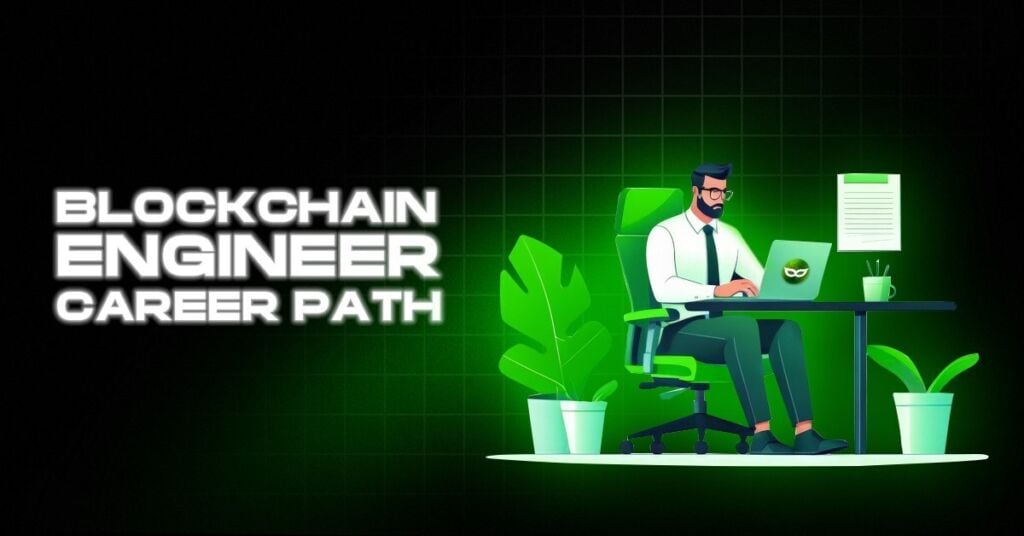
Table of Contents
What is Blockchain Development?
Term blockchain engineers define that we are talking about the design, development, and maintenance of blockchain-based systems. Blockchain is an important technology wherein distributed, tamper-proof data storage is guaranteed, secure, and transparent.
In this field, they work on a wide range of domains, such as cryptographic algorithms, consensus protocols, Smart contract development, and decentralized applications, also known as dApps.
Role of blockchain engineer
Blockchain engineering is the process of designing, developing, and maintaining blockchain-based solutions. However, they are crucial in creating secure and tamper-resistant decentralized systems. Here are the key responsibilities:
- Blockchain Architecture Design: Based on Use cases (public, private, consortium blockchains) design the structure of the blockchain networks. Choose appropriate consensus mechanisms (PoW, PoS) plus Ethereum or Hyperledger.
- Smart Contract Development Smart contracts can be written, tested, and deployed in Solidity or another language. Preventing attacks ensures the safety of contracts.
- The work of building decentralized applications (dApps) Write front-end and back-end parts of dApps that talk with the blockchain.
- Blockchain Integration Develop and implement blockchain solutions in alignment with existing business systems. Oracles and APIs should facilitate a smooth dialogue with blockchain and off-chain databases.
- Security from a cryptographic perspective From data protection and secure transactions, it also acts as a way to implement encryption protocols. Perform audits and implement criteria like 51% Sybil attack.
- Performance Optimization with sharding or the Layer 2 solution techniques (e.g., Polygon). Minimize costs like transaction fees for more scalability.
- Monitoring and maintenance of Blockchain Networks Keep an eye on the network for performance issues, bugs, security, or other activities that may have adverse quality of service impacts. When needed (e.g. Ethereum hard forks) you should perform upgrades and fork management.
- Working with Cross cross-functional teams with product managers, designers, and other developers to get optimal output for business using blockchain technology. Also, look out for legal regulations.
- Research and Innovation In addition Keep updated with blockchain advancements (e.g. Zero Knowledge Proofs, new consensus models). Experiment with new technologies so blockchain features can be improved.
- Training and Documentation Build your technical documentation for projects & protocols. Train other developers or stakeholders in blockchain technologies.
Becoming a blockchain engineer
- Understand the Basics of Blockchain technology:
Learn what a blockchain is (distributed ledgers, cryptography, consensus mechanism). You need to understand some basic concepts such as smart contracts, public/private keys, and tokens.
- Gain Programming Skills Focus on languages commonly used in blockchain development:
Ethereum smart contracts, Solidity. Go for Hyperledger Fabric, dApps and frontends, JavaScript/TypeScript. Learn Rust, C++, or Python if you’re interested in backend and low-level blockchain protocol.
- Learn Cryptography and Data Structures.
Oil racers, hash functions, digital signatures, encryption — learn about all this! Learn about Merkle trees or block structures in Blockchain Networks in the study.
- Blockchain Platforms Hands-on Experiment with Popular Platforms:
Building decentralized apps (dApps), and smart contracts on Ethereum. Enterprise blockchain, solutions like Hyperledger.
For scalable solutions, Polygon, Solana, or Binance Smart Chain. If you’re using Solidity then you can use online tools like Remix, if you’re on something like a blockchain framework like Truffle, you can use Trufflers.
- Build Smart Contracts and dApps:
To practice, build small projects (for example token contracts or voting dApps). It’s a good idea to become familiar with Web3.js or Ethers.js libraries for interacting with blockchains.
- Get in touch with Blockchain Security Best Practices: Learn to understand vulnerabilities such as re-entrance attacks and integer overflows.
- Take a look at Blockchain Networks and Consensus Protocols. Look at the workings of Bitcoin, and any other blockchains.
- Become a part of Blockchain Communities and Open-Source Projects.
Write into GitHub repositories and hang out in blockchain forums on Stack Exchange and Reddit.
- Program Certifications and Courses
In this regard, the courses related to Blockchain are available here and there on platforms like Coursera, Udacity, and edX. Check the series of certifications like Certified Blockchain Developer (CBD) or Ethereum Developer Certification.
- Internships or Junior Roles
Apply for Roles to start with are a blockchain developer or smart contract engineer. Start with an Intern role at blockchain startups or tech companies, to understand the workings of blockchain development.
Difference between blockchain engineer and blockchain developer
Focus
- Blockchain engineering focuses on Infrastructure, architecture, and protocol design.
- Blockchain developer focuses on Application-level development, dapps smart contracts.
Responsibilities
- Blockchain engineer Manages and builds blockchain networks and frameworks.
- Blockchain developers decentralize applications and smart contracts.
Skills required
- The main skills required in blockchain engineering are Protocols (PoW, PoS) basic cryptography, and network design. Also requires knowledge of Rust, Go, and C++.
- Blockchain developer needs to be precise with programming languages like python and Javascript.
Tools and platforms
- Blockchain engineer uses Hyperledger Fabric, Ethereum client development, and consensus frameworks.
- Blockchain developer uses Truffle, Hardhat, Web3.js, Ethers.js, and Remix IDE.
- Blockchain Engineers build infrastructure—designing and keeping blockchain networks alive.
- Application-level solutions, which include dApps and smart contracts are worked upon by Blockchain Developers.
Scope of blockchain engineering
The demand for decentralized, secure, and transparent systems has a large scope for blockchain engineering in different industries as a whole.
The field is taking off rapidly and is available in multiple sectors. Here are some key areas where blockchain engineering plays a vital role:
- Blockchain Architect: It designs and builds blockchain networks.
- Smart Contract Engineer: The emphasis of this is on writing and testing smart contracts.
- Blockchain Security Specialist: Makes sure that protocols are secure, and resistant to attack.
- Research and Innovation: New consensus models, scalability solutions, and blockchain interoperability solutions are explored by the engineers.